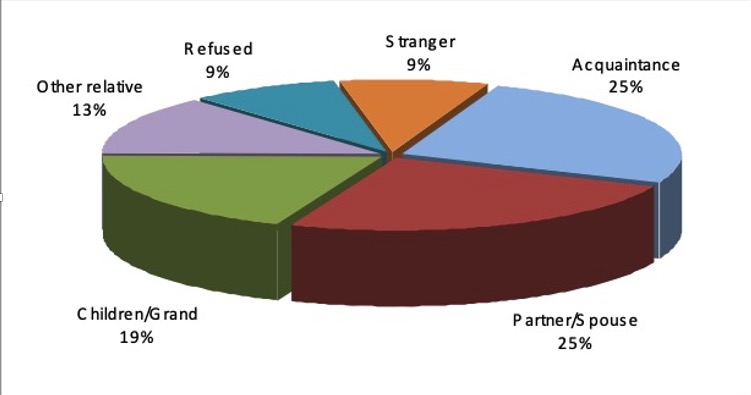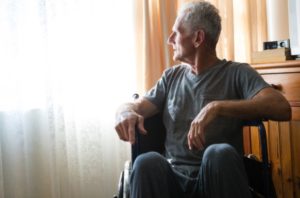
The unfortunate truth is that elder abuse is shockingly common.
Whether it be physical harm, psychological harm, or just outright neglect…
Seniors are more vulnerable than ever.
According to the National Institute of Justice 1 in 10 elders have reported experiencing some type of abuse (Source: National Mistreatment Study).
In reality, it’s estimated that only 8% of those who experience abuse actually report it to the police.
Emclinic.Com.Ua/7346-Prichiny-Ponizhennogo-Libido-U-Muzhchin.Html
The world is experiencing a much larger aging population than ever before.
Making the situation all the more difficult.
Not only is there necessary action to stop this abuse…
But how does an elder show that it’s actually happening?
Since abuse comes in many forms, finding the right proof can be difficult.
Page Contents:
Proving elder abuse can be a challenge, so it’s key that you look for common warning signs if you suspect a case of abuse. These signs can be bruises, abrasions, depression, poor hygiene, self-doubt, along with many others. If you believe a family member or loved one is experiencing abuse…
You should report the case immediately.
To effectively prove a case of elder abuse, you will need to understand the 7 different forms of abuse.
A few examples are:
At the end of the day, some forms of abuse are easier to detect than others. For example, physical abuse often leaves clear evidence behind.
An individual who has experienced physical abuse may have scratches, bruises, cuts, lacerations, or broken bones.
Other forms such as emotional abuse or neglect can be harder to prove. In this case, the tell-tale signs will be in the victim’s behavior.
You should examine them closely to look for any red flags.
Victims of emotional abuse or neglect may show signs of:
To build evidence you should take detailed notes of their behavior or any videos/photographs that could show that the abuse occurred.
You should also talk to other residents and staff and gather testimony to help build your case. These records can be vital in not only reporting your case, but potentially building a case for a lawsuit.
If you or a loved one believes they are experiencing a form of abuse, you should get in touch with a lawyer immediately.
Get in contact with us for your free (no obligation) consultation. This initial consultation is completely confidential, and will cost you NOTHING unless you win your case.
Before you investigate a suspected case (or report one for that matter). You should understand the definition of elder abuse. Elder abuse is the intentional act or failure to act that causes or creates a risk of harm to an older adult.
An older adult is defined as an individual who is age 60 or older. Abuse typically occurs at the hands of the caregiver or someone the victim trusts.
Similar to all forms of mistreatment, strangers are not typically the perpetrators.
Here is a graph from the National Mistreatment Study that shows a breakdown of perpetrators known from a recent mistreatment event.

In more than half the cases you can see that the abusers were known family members. The study found that about 20% of perpetrators were abusing substances around the time of mistreatment and the same proportion had a form of mental illness.
The CDC has some additional resources on the risk and protective factors associated with elder abuse, which can sometimes lead to violent interactions with the elderly.
The most commonly reported form of elder abuse is typically financial abuse. According to the National Council on Aging, elders are more likely to report financial exploitation rather than emotional, physical, or sexual forms of abuse.
Though neglect is actually the most common form of abuse, unfortunately, it is also the most under-reported.
(and it can go unrecognized by the elder).
The reason for this is continual emotional mistreatment can be internalized and viewed by the victim as a form of “normalcy.”
Financial abuse on the other hand is the most tangible and easy to identify.
This type of abuse is defined as the illegal, unauthorized, or improper use of an older individual’s resources by a trusted individual.
To build a case for financial abuse…
You should look for these signs:

If you discover that an older person above 60 is suffering from abuse you should report the case immediately. Some states require individuals by law to report a known case within 24 hours if a senior is being abused, neglected, or isolated.
If you’re not considered a “mandated reporter” there is some gray area in terms of the actual time frame to report. If you suspect a case but aren’t sure of it, it’s always safe to report anyway.
Otherwise, you can go about your due diligence to build a case against the perpetrator if you feel it’s necessary.
In some states (Like Nevada) here are people that are mandated to report a case of abuse if they see one.
If there is a case of life-threatening elder abuse it must be reported to law enforcement immediately (no exceptions).
There are a number of reasons that elderly victims will not report a case of abuse. These include fear, shame, fear of loss of independence, or lack of understanding. It’s natural for a victim to feel scared, and it’s easier to try and forget or go into social isolation.
The Senate Special Commission on Aging estimates that there may be 5 million cases of elder abuse per year, and only 1 of every 14 cases is typically reported.
Let’s go into more detail on why some individuals might fail to report:
Fear of loss of independence:
This is particularly true with seniors who live alone and have a caregiving professional that comes to their house. The elderly can be afraid of being forced into a residential facility, so they often don’t report the abuse.
They feel shame:
Though there is nothing that victims should be ashamed of, it is a very common phenomenon that victims of abuse will experience. This shame causes them to keep the information inside, and are too embarrassed to report the case to the correct channels.

Fear of retaliation:
Elders that are being abused can be scared that reporting the information can only worsen the abuse from a perpetrator.
No family to talk to:
Elders who are abused may not have family members to talk to about the abuse that’s happening. If the elder is alone for the most part, it can be hard for them to find someone they trust to talk to about what’s happening.
Fear of upsetting the family dynamic:
If an elder is being abused by a family member, they might refrain from reporting to avoid bringing shame to the family as a whole.
They don’t know how to report:
Elders can be reluctant to talk about a case of abuse if they don’t know how to report the situation. Or maybe they don’t even know that it’s possible for them to report something like this.
Each year the elderly population increases and more seniors are becoming dependent adults that can no longer take care of themselves all on their own.
Here is a staggering statistic:
By 2050, people aged 65 and older are expected to make up 20% of America’s population (source: U.S. Census)
Therefore it’s more important than ever for you to report a situation of abuse if you suspect one is happening. Though proving a case isn’t always easy, there are ways you can build evidence to ensure that justice is served.

To build a case of abuse, you can do the following:
If you or a family member has been suffering from abuse or neglect in a nursing home, long-term care facility, or skilled nursing facility, you could be eligible for financial compensation. We can connect with you with nursing home abuse attorneys that will fight to get the maximum compensation for your unique situation.
Get in touch with us for your free consultation! A lawyer will be in touch soon to discuss and evaluate your potential case.
There are no fees unless you win your case. Call us at (855) 344-1017 today!